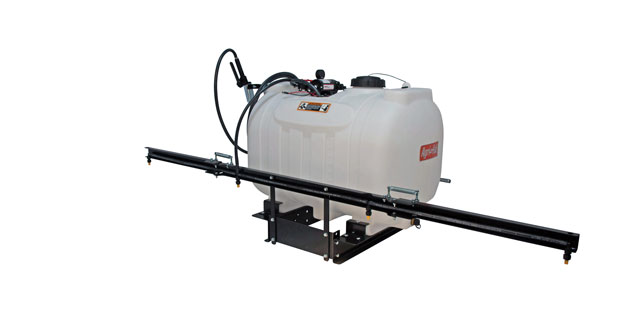In december, the Professional Landcare Network (PLANET) and National Pest Management Association (NPMA) joined forces to host the first-ever joint Lawn Care Summit in Orlando, FL.
When the two groups initially discussed the possibility of co-organizing such an event, they hoped to attract 100 attendees. Triple-digit attendance was a somewhat ambitious goal for a first-time event being launched during this economic slowdown, but it proved to be an entirely achievable one with this dynamic duo of industry associations — the Lawn Care Summit drew more than 200 lawn care and pest management professionals.
Rob Lederer, NPMA executive vice president, said many pest management professionals are exploring ways to expand their services, diversify and bolster revenues. They’re thinking outside the box (structural pest control) and are looking at the greener side (lawn care).
Additional education and networking is needed to realize these goals. That’s where the Summit came in, said PLANET CEO Sabeena Hickman.
“Attendees of our joint Lawn Care Summit will walk away with fresh thinking … insight for business plans and lessons learned from those who have ‘been there, done that,’” Hickman said.
Uphill battle
Tom Delaney, PLANET’s Legislative Affairs Director, discussed shared regulatory issues with attendees of the two-day event.
“Managed turfgrass and landscapes are being targeted as so-called non-essential, cosmetic uses of chemicals,” Delaney added. “There’s a broad underestimation of the benefits of a managed ecosystem.”
One of the problems is there’s little timely, scientific information — and even less publicity — on the positive impact properly managed green spaces have on the environment. The arguments the Green Industry uses today basically are the same it offered 20 years ago, Delaney said.
“As we talk about carbon sequestration, and those types of things, it’s still evolving,” Delaney said. “We don’t have good research to show out there. The political climate is fast-changing, and failure to act could minimize or negate the future opportunities we have.”
During Delaney’s talk, one attendee asked another how legislation could target the lawn care industry when professionals are responsible for only about 20% of residential lawns and landscapes.
“I posed that same question to a regulator in New Hampshire once,” replied the second contractor. “His response was, ‘My friend, you’re
confusing science with politics.’”
Obstacles & Opportunities
Delaney’s talk was one of a number of dual-track sessions that covered both technical and managerial topics.
During the general session on the second day of the program, “Trends in Lawn Care — The Future of the Industry,” attendees also got to hear from representatives of some of the biggest players in the Green Industry, including: Russ Frith, president and CEO of Lawn Doctor; Tom Hofer, CEO of Spring-Green Lawn Care Corp.; Philip Dobbs, chief marketing officer of The TruGreen Cos.; and Harvey Massey, chairman and CEO of Massey Services.
Frith discussed many of the factors that led to the current economic condition, including an “entitlement mentality” that drove far too many Americans to buy houses with no money down. This, among other factors, created a perfect storm.
“These things are out of our control,” Frith said. “But we can understand the effect on our businesses and manage around them.”
Harvey Massey said the nation faces record unemployment, home foreclosures and bankruptcies — all of which contribute to resistance to price increases.
Massey did share one silver lining.
“It’s at times like these we must have a love affair with our people,” said Massey, adding, “I don’t believe there is a bad economy as long as there is one; some (economies) are better than others. But there is an economy — people are spending money.”
Hofer spoke about the pressures the industry faces from environmentalists.
“The last thing we want to do is harm the environment,” Hofner said. “Today, organic and sustainable lawn care are niché markets. That could change and grow in the years ahead.”
New economic realities force people to do more with less money, said Dobbs, noting many are worried about their future employment and how to juggle their household budgets.
“People have less time and money, and more choices and information on companies and the products they use. If you offer clarity, you can improve your market share,” Dobbs added.
PLANET and NPMA executives said they haven’t decided whether the 2009 Lawn Care Summit was a standalone event or the start of an annual program. Any doubt about what attendees thought, however, was put to rest during the closing session — when an attendee stood up and said, “You said ‘if’ we do this again next year. It should be ‘when’ we do this again next year.”

